You're new to baking and wondering if the flour brand really matters. We've done some research and are eager to share what we found. So keep reading to find out about the differences in flour brands.
Flour brands vary by protein amount based on mill formula, which is enough for an experienced baker to notice a difference. For a novice, all brands work, but some produce better results. Brand preference will depend on compatibility with your favorite recipes and flour type. Below are some popular brands used by the experts:
- King Arthur
- Gold Medal
- Bobs Red Mill
- Pillsbury
- White Lily
Brand matters because of protein content but there's more you need to know about flour for successful baking. Flour type can matter more than brand. Using the wrong type of flour can be a recipe for disappointment. Keep reading to find out about the differences in popular flour brands and types, and how to choose the right one for your baking needs.

Baker's Choice For Flour
If you don't know about flour or have a lot of baking experience, it's confusing to see the different flours at the store. Baking takes time and effort and you want the best results. So let's take a look at the all-purpose flour brands professionals recommend.
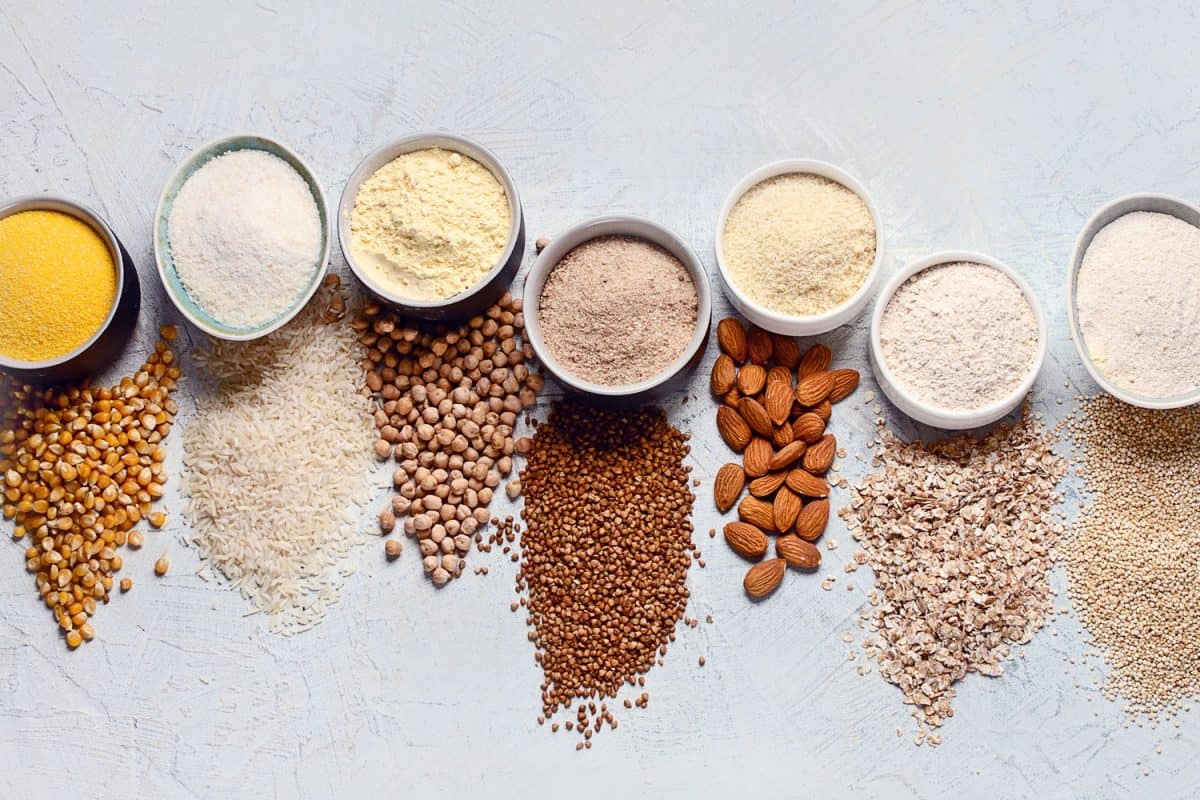
King Arthur
King Arthur is an unbleached flour that maintains a specific protein content (11.7%), not a range, for consistent baking results. It's sourced from non-GMO wheat grown by American farmers. They offer an extensive product line, including signature flours, organic flours, gluten-free flours, and grain-free flours. Purchase King Arthur All-Purpose flour on Amazon, click here.
Gold Medal
Gold Medal flour earned its name by winning the gold medal at an international milling contest in 1880, but the tradition of quality flour started long before then. Gold Medal offers a product line that focuses only on flour with all-purpose containing 10.5% protein. Purchase Gold Medal All-Purpose flour on Amazon, click here.
Bobs Red Mill
Bob's Red Mill commits to offering safe, healthy all-natural products. Non-GMO grains are ground on a traditional quartz stone mill at a slow speed and low temperature to preserve the nutrients and flavor. Bob's Red Mill produces a wide variety of flours and products to accommodate special diets and ethnic recipes. The all-purpose flour has a protein content of 10% to 12%. Purchase Bob's Red Mill All-Purpose flour on Amazon here.
Pillsbury
Pillsbury and its famous Doughboy have been offering a variety of baking products for many years. Pillsbury offers 10 different types of flour to meet your baking needs. The all-purpose flour has a protein content of 10% to 11%. Purchase Pillsbury All-Purpose flour 2-pack on Amazon here.
White Lily
White Lily's 100% soft winter wheat flour (7% to 8.5% protein content) is a staple for southerners who want light, fluffy biscuits. Product selection is small for this regional mill; basic flour and cornmeal. Typically only sold in the southern United States. Purchase White Lily All-Purpose flour on Amazon.
Flour 101
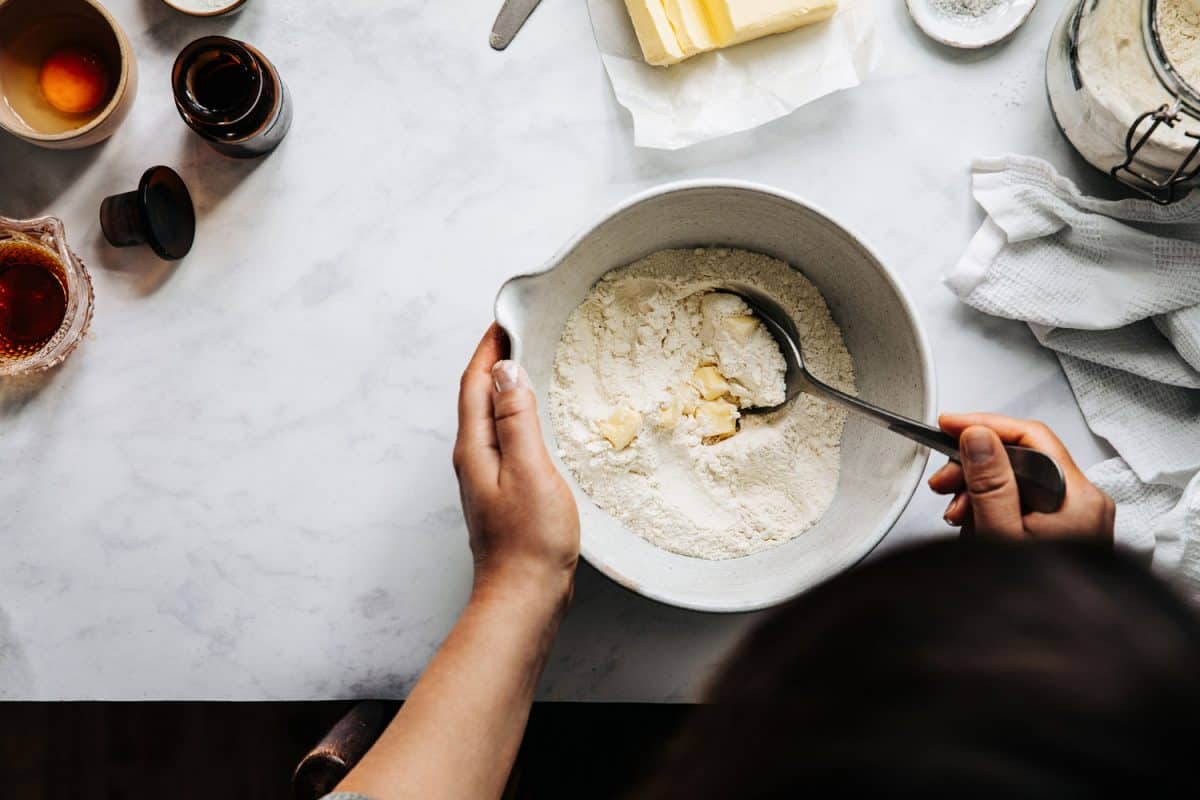
Most flour in the United States is milled from high protein hard wheat or low protein soft wheat. Protein forms gluten which builds structure and determines the strength and texture of baked goods. Recipes use different flour types containing varied protein content, ranging between 6% and 15%, based on suitability for specific baked goods.
Types of Flour
Why so many types of flour? Each one has been blended and processed to be best suited for different baking tasks or special diets. This eliminates the guesswork. Specialized flours save bakers time and effort.
All-Purpose Flour
Kitchens used to have only one type of flour, all-purpose. It's still the most common and versatile flour. Some flour types can be created in your own kitchen by blending other ingredients into all-purpose flour. If a recipe says flour, then all-purpose is what it means.
Bread Flour
Bread flour is made from hard wheat, giving it strength and really high protein content. The strong gluten works well with yeast to make bread rise. It also gives a desired chewy texture and helps the crust to brown.
Cake Flour
Cake flour has the lowest protein of all flours. Less gluten yields tenderness making it desirable for cakes, muffins, and even biscuits. It also produces a moist baked good because the bleaching process alters the starch allowing more liquid and sugar to be absorbed during baking.
Pastry Flour
Pastry flour is an unbleached, lower protein flour that produces tender and flaky baked goods like pie crusts and tarts. Pastry flour falls on the protein content scale between cake flour and all-purpose. You can easily make your own by combining two parts of all-purpose flour to one part cake flour.
Self-Rising Flour
Flour in which the salt and leavening agent are added at the mill for convenience. It's made from soft wheat, so its low protein content is best in biscuits, scones, and pancakes. While tempting, it's not recommended to substitute self-rising flours in recipes that don't call for it.
Whole Wheat & White Whole Wheat Flour
During milling, wheat is separated into three parts. While regular flour mills one part, whole wheat flour mills all three. The additional wheat parts affect the gluten creating a sticky dough and dense finished product, so it's best used in cookies and bread.
White whole wheat is milled the same as whole wheat except with lighter hard white wheat. Therefore, it has the same protein content and nutritional value but with a lighter appearance and sweeter taste. It is best used in cookies, muffins, and bread.
00 Flour
Italian flour is named doppio zero or double zero flour. Its name comes from the grind classification used in Italian flour milling. It's powder-fine yet has high protein, different from American finely ground, low-protein flours used for cakes and pastries. Made from red wheat, 00 flour has an elasticity that gives pizza crust, Italian bread, and pasta that nice chewy texture.
Gluten-Free Flours
Some people are gluten intolerant or need options for special diets. To accommodate these needs, flours are made from ingredients other than wheat. Common grains and plants include almond, coconut, potato, corn, soy, flaxseed, or rice.
Ethic Flours
Flour is used worldwide, but ethnic dishes often rely on indigenous grain sources for milling flour. For example, Indian recipes use flours made from chickpeas, malted barley, and legumes. Nigerian dishes may use Fufu flour made from plantains. Ethnic flours, found at ethnic food stores, produce distinctive flavors and textures in international recipes.
Is There A Difference In Flour Quality?
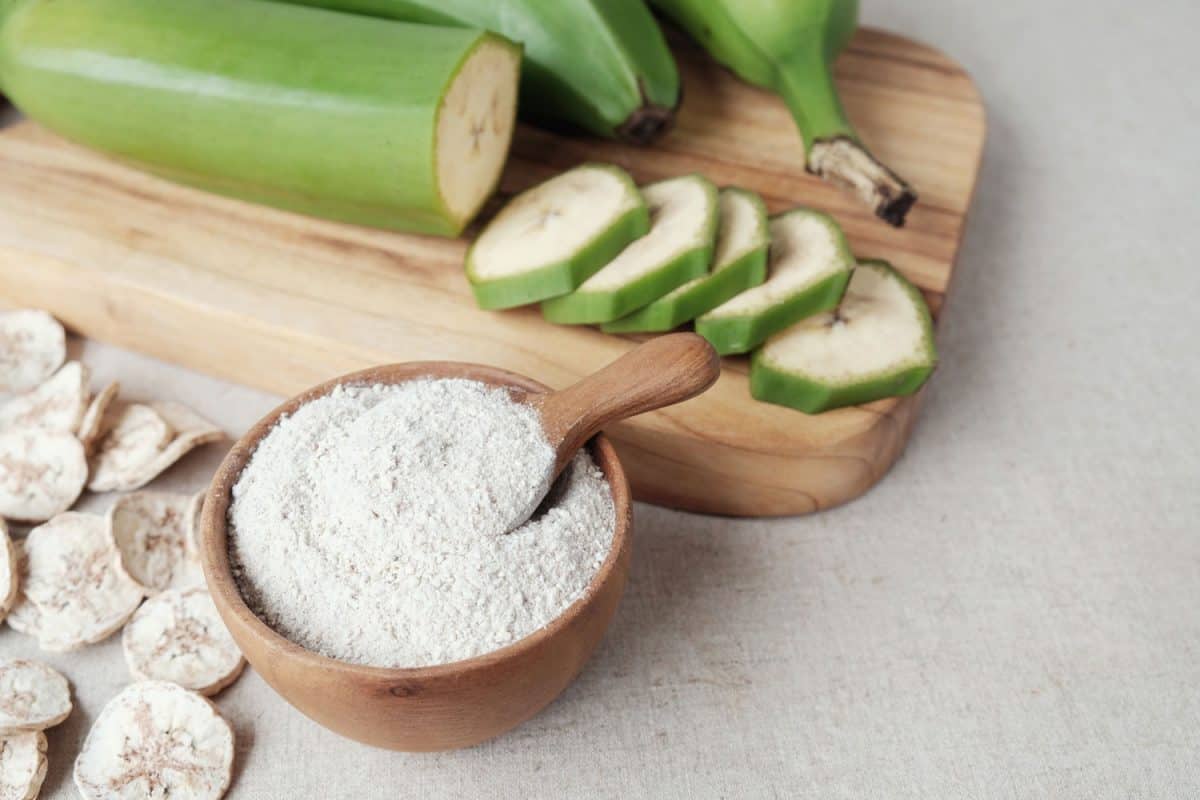
Flour quality at a scientific level, monitored by mills, is complex involving moisture content, protein, ash content, and enzyme activity. It boils down to protein content for a baker, the ability to form the proper gluten structure, and consistency. Bakers want a flour to perform the same every time a recipe is baked.
What Type Of Flour Is Best For Baking?
This depends on what you are baking. You can purchase flour created specifically for breads, cakes, and pastries, and those produce the best results for those items. Most flour types will produce acceptable results, but you might not get the rise, texture, or appearance that you hoped. If you prefer simplicity over prize-winning results, then all-purpose flour is your best choice. If you bake mostly bread, choose a high protein all-purpose flour. Otherwise, a moderate protein flour is best.
How Can You Tell The Quality Of Flour?
Mills have scientific tests and high-tech equipment to test the quality of flour. There are also sensory tests that use sight, smell, and feel, but even those are beyond the average person's ability. So instead, bakers rely most on a flour's reputation, behavior, and consistency.
Which Flour Is Better For Baking: Bleached Or Unbleached?
During milling, wheat pigments remain, giving flour a yellowish color. The color fades naturally with oxygen exposure, but mills add bleaching chemicals such as chlorine gas or benzoyl peroxide to give the flour a bright white appearance. The USFDA deems the process safe, but some countries ban bleaching chemicals for food use.
Bleaching is mostly about appearance. If you prefer a more natural product and the darker color doesn't bother you, then unbleached is for you. While there shouldn't be a difference in taste or texture between bleached or unbleached, one tester noted a bitter, metallic aftertaste in the baked goods that used bleached flour.
Does Expensive Flour Make A Difference?
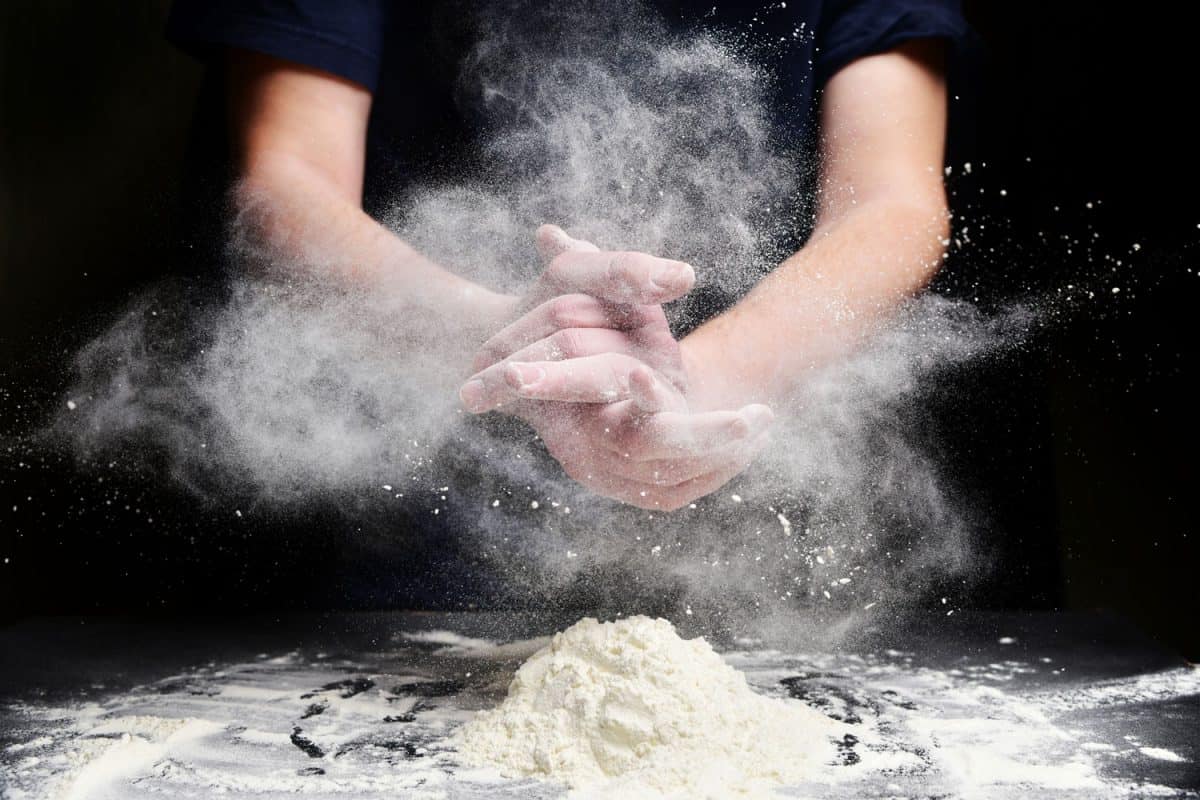
A quality, all-natural flour will cost more than the average bag of flour. You are paying for what you aren't getting: chemicals, additives, and over-refined genetically modified wheat. If you buy locally, you may be supporting a local farmer and mill, so it makes a difference in more than just quality, flavor, and safety.
In Summary
Flour brands and types affect the outcome of your baking. Understanding the protein content of popular brands and each flour type's purpose will help you choose the right flour for your next baking adventure.
To learn more about how to properly store flour check out this article: "What is the Best Container to Store Flour? [7 Suggestions]."
If all this talk about flour has you ready to start baking cookies and cakes, check out this article: "Should you Melt Butter When Making Cookies and Cakes."






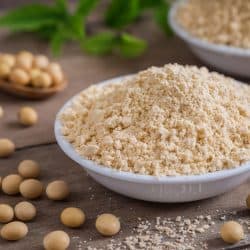


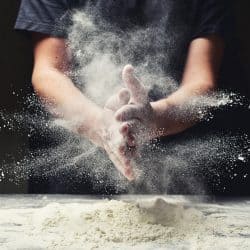
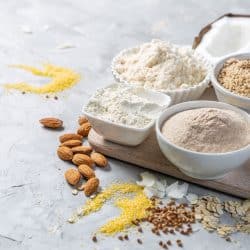
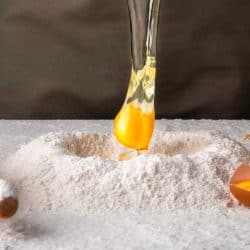
I have a comment for the Canadians out there. We grow hard wheat up here, I believe mostly due to a shorter growing season. Our All-Purpose Flour is hard wheat. Most long time bakers use this to bake bread. You will occasionally find Canadians ordering King Arthur from the States for a softer flour.